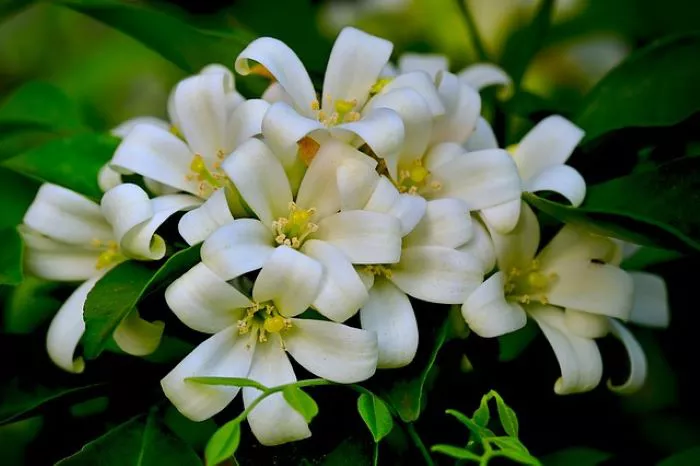Jasmine flowers are celebrated for their beauty and enchanting fragrance. These delicate blooms have significant cultural, symbolic, and emotional meanings across various societies. Understanding what jasmine represents can deepen our appreciation for this beloved flower. This article will explore the symbolism of jasmine flowers, their cultural significance, and their emotional associations.
Symbolism of Jasmine
Jasmine flowers often symbolize purity, love, and sensuality. In many cultures, they are associated with romantic love and intimacy. The sweet and intoxicating scent of jasmine has made it a popular choice for romantic gestures, such as bouquets and floral arrangements. The flower’s delicate appearance and rich fragrance evoke feelings of affection and passion.
In addition to love, jasmine is also a symbol of purity. The white blossoms of many jasmine species are often associated with innocence and virtue. This association makes jasmine a common choice for weddings and other ceremonies that celebrate love and commitment. The purity of the flower reflects the purity of the emotions shared between partners.
Cultural Significance of Jasmine
Jasmine flowers hold significant cultural importance in various regions around the world. In India, jasmine is deeply embedded in cultural practices. It is often used in religious ceremonies and is a popular flower for garlands and decorations. Jasmine garlands are commonly worn by brides and are offered to deities during worship. The flower’s fragrance is believed to attract positive energy and blessings.
In the Middle East, jasmine is a symbol of hospitality and generosity. It is often used to adorn homes and public spaces. The scent of jasmine is associated with warmth and welcome, making it a favored choice for gatherings and celebrations. In some cultures, jasmine is also linked to good fortune and happiness.
In Western cultures, jasmine is often associated with romance and desire. Its sweet fragrance is commonly used in perfumes and scented products, creating an atmosphere of intimacy. The flower’s presence in romantic settings, such as weddings and anniversaries, reinforces its association with love and passion.
Jasmine in Literature and Art
Jasmine flowers have inspired countless poets, artists, and writers throughout history. In literature, jasmine often symbolizes love and beauty. Many poets have used the flower to convey deep emotions and romantic sentiments. The delicate petals and intoxicating scent serve as metaphors for the complexities of love and desire.
In art, jasmine is frequently depicted in paintings and floral arrangements. Artists capture the flower’s beauty and fragrance, using it to evoke feelings of serenity and joy. The presence of jasmine in art often signifies a celebration of nature’s beauty and the emotions it inspires.
Emotional Associations with Jasmine
The fragrance of jasmine is known to evoke strong emotional responses. Many people find the scent calming and uplifting. In aromatherapy, jasmine essential oil is used to reduce stress and anxiety. The soothing properties of jasmine make it a popular choice for relaxation and self-care.
Jasmine is also associated with sensuality and passion. The rich, sweet aroma is believed to enhance romantic feelings and create an intimate atmosphere. Many couples use jasmine-scented candles or oils to enhance their romantic experiences. The flower’s fragrance can help set the mood for love and connection.
Jasmine in Traditional Medicine
In addition to its symbolic meanings, jasmine flowers have been used in traditional medicine for centuries. Various cultures have recognized the medicinal properties of jasmine. The flowers are known for their anti-inflammatory and antiseptic qualities. Jasmine tea is consumed for its soothing effects and is believed to promote relaxation.
The calming properties of jasmine extend beyond its physical benefits. The flower’s fragrance is often used to alleviate stress and promote emotional well-being. In traditional practices, jasmine is associated with healing and restoration, making it a valuable addition to holistic approaches to health.
Conclusion
Jasmine flowers represent a rich tapestry of meanings and associations. They symbolize love, purity, and sensuality, making them cherished in various cultures. The cultural significance of jasmine is evident in its use in ceremonies, literature, and art. The flower’s enchanting fragrance evokes strong emotional responses, promoting relaxation and enhancing romantic connections.
Understanding what jasmine flowers represent allows us to appreciate their role in our lives. Whether used in a bouquet, a garland, or a scented product, jasmine continues to inspire and captivate. Its beauty and symbolism make jasmine a timeless flower that transcends cultural boundaries, embodying the universal themes of love, purity, and emotional connection.


